Dust 514 Preview: Worlds Collide
CCP's confident shooter paints a bright future for Eve.
We know everything and nothing about Dust 514: it's a shooter, it focuses on large-scale multiplayer combat, it'll even be free and - based on our hands-on experience at this year's Eve Fanfest - it plays impressively (even more so when you consider that this is virgin territory in both game style and platform for the developer CCP). But when it launches, it will also be irrevocably intertwined with the history of gaming's most infamous sandbox, and against a backdrop of villainy, greed and controversy.
This is the unknowable. Actions large and small rock idly back and forth like dominoes - when they fall it can mean the last gasp of an Alliance, which causes a shortage of essential goods, which drives a market price up, which scuppers expansion elsewhere. Some may make a louder noise than others when they fall, but the cascade never really ends - from start to finish, the universe of Eve Online is an intricately woven history of kingdoms and nails.
And yet it's this uncertainty, and this melding together of two of gaming's most unlikely bedfellows - the ruthless sandbox PC MMO and the console first-person shooter - that heralds Dust 514 as the first of our Actual New Games of 2012.
It begins - as it did to great fanfare at this year's Eve Fanfest - with orbital bombardments, teased in the Future Vision trailer of last year's community gathering, rapturously received at the time, and widely assumed to lie somewhere off in the next 15-20 years of gaming's future.
In Reykjavik last week, without technical smoke-and-mirrors, we watched as a PlayStation 3 player on the battlefield painted a target on the ground before relaying a launch code to an Eve player hanging in orbit above. With the code entered, the space-weapon fired, its beams appearing with beautiful, destructive force on the console screen, and with only the most realistic of delays. In words, it's simple. In concept, it represents much more, uniting not just different worlds but different platforms entirely.
CCP's woes of last summer have been extensively documented and will be given little space here, although it's an unavoidable topic of conversation when I sit down to interview Hilmar Pétursson, CEO of CCP. The realisation of such an unlikely mechanic seemed like a necessary love-letter to Eve subscribers, the de facto investors who saw little potential return from a console title that would be denied a place on the PC platform - and feared that Dust's microtransaction model would be forced into Eve.
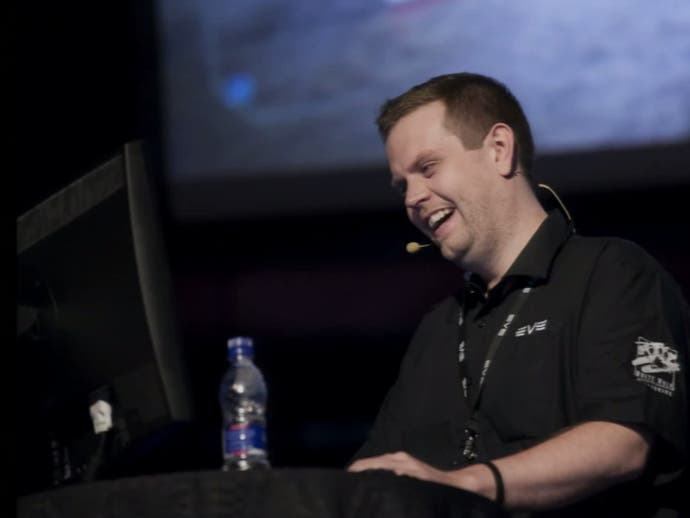
"I think we wouldn't have orbital bombardment because we wouldn't have made the changes at CCP that needed to happen to allow us to pull things like this off," he replies when I ask if the positive reaction to the trailer - followed all too quickly by the player revolt last summer - was a call-to-arms for the developer. "The company had grown very rapidly, we were a little bit all over the place, our structure and processes were not well defined. Our ability to deliver things has just gone up quite a bit, so that's really what we're seeing."
Entertaining though it would be for a PC gamer to sit in orbit above a planet, idly taking pot-shots at the soldiers below, PlayStation 3 owners will be reassured to know that artillery on the ground will be available for capture - and returning fire into space. While we won't find out the specifics of return-fire until E3, a mere tit-for-tat equalisation on the cross-platform battlefield doesn't of course take into account the politics so embedded within the Eve universe.
"Eve is very much about trust, and we'll never put in place mechanics that do away with that, " says CCP's Chief Technical Officer Halldar Fannar. "We want people to have trust - so you can see with the whole co-ordinate exchange thing how somebody could betray your trust. You [the Eve player] could actually still be under the impression that you're about to shoot at the target you guys agreed to. But that guy could easily fake you out and give you another target - at that point of course your relationship is damaged."
Even more meaningful interaction, and the content that will add purpose to this persistent connectivity, will be related to Eve Online's Planetary Interaction system, which allows players to harvest raw materials from planets and transport these resources to the trading hubs of the game. Again, it's at E3 that we'll find out the finer details but longer-term, the developer is ruling nothing out in terms of bringing these two disparate worlds together.
"It's all absolutely possible - they're basically on the same server, so anything you can think of is possible," says Pétursson. "Is it sensible? That's another question, and I hope eventually all of these things will be sensible, but for sure they're not sensible in the beginning. We can't be foolishly risking our core business like last year, just because we're obsessing about the future - or I am obsessing about the future."
Fannar is equally determined to ensure that the games are blended - rather than forced together. "We're not just going to open up the vent, with people drinking from the fire-hose. We would love to reach a state eventually though where we can allow the Dust mercenaries to take the space elevator up to a space-station and actually physically interact with Eve players."
The tough sell in the present of course is in convincing console owners not just to commit to a process of time-absorbing advancement (CCP estimates it will take around seven years to maximise all of the Dust 514 skills), but to be reassured that the pay-off won't disappear with a whimper come the obsolescence of current console hardware.
Pétursson wouldn't comment on any specifics surrounding the PlayStation 3's successor ("I actually know nothing about it - I'm not even just saying that!"), although Eve Online has historically set a precedent with the release of the Trinity expansion which brought a radically-overhauled graphical lick of paint to the universe. For some while, both clients ran side-by-side and CCP is confident that this would be the preferred method for Dust's own evolution onto new hardware. But while Pétursson himself acknowledges this as a problem, it's a problem he's happy to leave for the future.
Right here on the battlefield at Fanfest we're taking part in the capture of a warehouse installation. Spawn points spread as territory is captured and roles can be switched between deaths. Players create and store soldier load-outs and the ones on display today include a heavy infantry (stronger and slower, but armed with a viciously tactile chain-gun), a sniper, a med support engineer or the more lithe, run-and-gun infantry.
In addition to upgrading skills through gameplay, players will - as with Eve Online - accrue skill points passively, allowing them to either specialise deep into advancement trees to become the ultimate sniper, or simply expand their ability to handle varying forms of weaponry. Through Powergrid and CPU caps there'll be limitations on the amount of weaponry and armour that can be equipped at any one time, but these too can be increased through skill training. The thorny issue of microtransactions is being handled with far greater delicacy than in Eve's Incarna expansion last year, with a focus on cosmetic upgrades and so-called 'side-grades' providing an alternative, yet balanced, flavour to weapon traits.
In combat there's nothing revolutionary about the core mechanics of the game as a shooter - although it's remarkable in itself that the developer's first console outing punches at the weight of its established contemporaries. But a moment does arrives that offers up a little bit of magic, and the potential for the same kind of intensity that causes stomachs to drop across Eve's New Eden whenever combat arrives unexpectedly.
With the immediate priority of being the last to die ignominiously on the battlefield safely out of the way, the players - without discussion amongst ourselves - take in more of the battleground, the natural synergy required to take effective advantage of tanks and tools, the cover opportunities and the targets. Maps are more commonly referred to, common sense is applied in group positioning, and an overwhelmingly intuitive strategic game of cat-and-mouse starts to click within each team's mentality.
"We're distributing and strategically placing battle servers around the world which connect into Tranquility [Eve's 'super-computer'] in London," explains Pétursson when asked about the technical challenges of maintaining a fast-moving FPS network in conjunction with the slower-paced gameplay of Eve Online - and tying the two together into a cohesive, communicative whole. As well as enabling a functioning universe, it will also allow for national warfare to evolve from the real world into the game, as it so often has before in Eve Online.
"When you're playing over a particular planet, then it's going to map to a particular battle server in the real world. That means that some geographics will have lower latency for that battle server, and then slowly we'll sort of re-map the political spectrum of Eve onto Earth and the topology of the internet."
Beyond the grandiosity of welding two alien universes together, CCP has first and foremost to deliver their free-to-play first-person shooter into a crowded scene - one that lives up to the expectations of an audience who value their time and experience every bit as much as their money.
The build available at Fanfest was a little old and showed some wear around the frame-rate and graphical polish, but it was more than stable enough to give a strong flavour of the battlefield - and we're assured that significant progress has been made on the game since this build was created late last year.
"It's this crazy system that we built already and now we use for Dust," explains Fannar amongst talk of "spherical harmonics" as I nod in confusion while he explains the algorithms used to generate the Dust maps from Eve's planets. Once generated, they are tweaked and polished to ensure a compelling game experience.
"We have algorithms that generate all of this and now we're making it all match up. It's also important that even as I tell you that where we do the orbital strike that the player sends you coordinates, we still make sure that those coordinates actually map onto the globe in the right region, just so - because we want that verisimilitude, we want that feeling of this just being.
At launch, Dust 514 will concentrate on the temperate planets that populate the Eve Online universe, although nothing has being ruled out for the future. An expansion in 2013 will not only bring less agreeable habitats (lava, ice, gaseous planets, for example) to the game, but also new soldier outfits including the kind of heavy-armour fashion-ware favoured by Ellen Ripley. Further off into the future, the developer plans to allow entirely new gameplay mechanics to be introduced into the world.
"As the game evolves in the market, we will introduce new technology into the Eve universe that allows the Dust mercenaries to actually inhabit those planets, " says Fannar. "Right now, they don't have the technology, there is no infrastructure either on these planets that is of use to them, so they need to develop a tech."
For all the talk of orbital bombardments, cross-platform technology, algorithmic worlds and innovation there's a comment made by Pétursson that resonated far longer after our interview, and it concerned the new CCP - and its new-found ability to deliver on an ambition while staying tempered within the framework of reality.
"We still haven't lost the crazy!" he assured me in the middle of our interview, with the genuinely happy look of a man who's rediscovered the source of his passion, unburdened from the suffocation of an internal business machine that had run out of control.
But that was last year, and CCP cannot stumble in their second attempt at the microtransaction model. The success of Dust 514 depends on so much more than cost however, and while much will depend on the meaningful engagement that forms between the two audiences, the signs and future ambition of CCP are looking good.
As with Eve Online, what is certain is that it will be the players, not the developers, who learn of Dust's triumphs and tribulations first, and it's that interaction of colliding worlds that makes the former more likely. In short, Dust 514 is an Actual New Game - and for all the previews in the world, we won't quite know what that it is until the game has experienced its own genesis within Eve's wider universe.
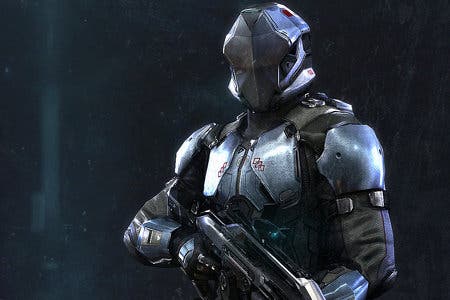




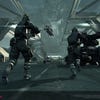






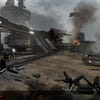
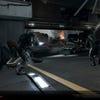
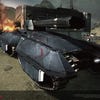





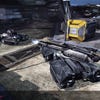




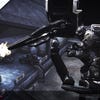

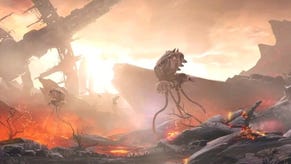
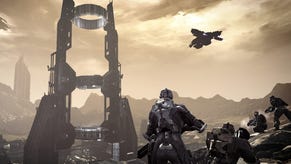

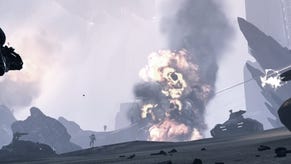
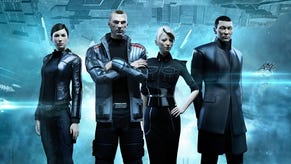
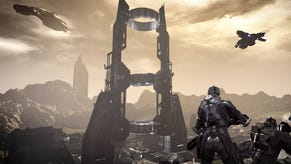
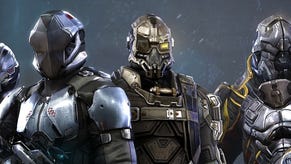

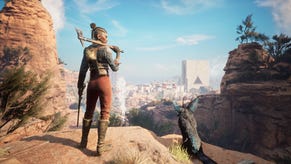



.png?width=291&height=164&fit=crop&quality=80&format=jpg&auto=webp)


